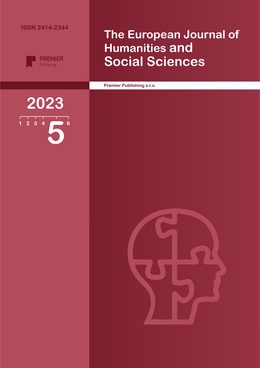Vaccine Apartheid As a Structural Injustice: the Social Connection Model of Responsibility Perspective
Authors
Yue Qi

Share
Annotation
Within the branches of global justice theory, there are two dominant perspectives: nationalism, which limits the scope of justice principles within constitutional communities, and cosmopolitanism, which extends justice to encompass the universal human rights of people worldwide. However, the COVID-19 vaccine apartheid, caused by the refusal of major multinational corporations like Moderna to grant patent exemption to underdeveloped regions, cannot be adequately addressed within the frameworks of either nationalism or cosmopolitanism. Nevertheless, Iris Young's theory of structural injustice offers a more nuanced understanding of this issue. Specifically, utilizing the Social Connection Model of Responsibility can provide a more comprehensive solution to structural injustice problems like vaccine apartheid. In practice, the resolution path for vaccine apartheid validates the effectiveness of the Social Connection Model as a series of actions taken by civil society organizations, which ultimately led to the approval of the COVID-19 vaccine patent waiver proposal. By examining the effectiveness of the Social Connection Model in addressing patent apartheid issues, this paper highlights the trend of modern societal subsystem differentiation, and the potential for employing the social connection model to address global structural injustices.
Keywords
Authors
Yue Qi

Share
References:
References:
1. Agence Ecofin (2023) Kenya: l’américain Moderna investira 500 millions $ dans une usine de vaccins à ARN messager. https://www.agenceecofin.com/actualites/3103-107024-kenya-l-americain-moderna-investira-500-millions-dans-une-usine-de-vaccins-a-arn-messager.
2. Moderna (2021) 2021 Annual Report, 33. https://www.modernatx.com/.
3. Nick Dearden (2011) Moderna’ s profits show why Big Pharma can’ t meet our health needs. Aljazeera.
4. Canadian Centre for Policy Alternatives (2022)Canada should reject compromise proposal on TRIPS waiver in its present form: civil society groups. https://policyalternatives.ca/newsroom/updates/canada-should-reject-compromise-proposal-trips-waiver-its-present-form-civil.
5. WTO (2020.10.02) Waiver from certain provisions of the TRIPS Agreement for the prevention, containment and treatment of COVID19. https://docs.wto.org/dol2fe/Pages/SS/directdoc.aspx?filename=q:/IP/C/W669.pdf.
6. Moderna (2020.10.16) Statement by Moderna on Intellectual Property Matters during the COVID-19. https://web.archive.org/web/20201016195512/https://investors.modernatx.com/node/10066/pdf/.
7. Gunther Teubner (2006) The Anonymous Matrix: Human RightsViolations by ‘Private’ Transnational Actors. The Modern Law Review, 69(3), 344.
8. Marx/Engels (1845) Die deutsche Ideologie, in: Marx/Engels, Gesamtausgabe, Vol. I/5, 37. MECW 5, 47.
9. I. M. Young (2010) Responsibility for Justice. Oxford University Press.
10. Moderna (2022.05.06) Defendants’ Opening Brief in Support of Their Partial Motion to Dismiss Pursuant to Federal Rule of Civil Procedure. https://www.keionline.org/wp-content/uploads/Case-1-22-cv-00252-MSG-moderna-1948.pdf.
11. David Owen (2021) 15. Global justice and the governance of transnational migration. Handbook of Migration and Global Justice, 241.
12. Mills, E. et al. (2011) The financial cost of doctors emigrating from sub-Saharan Africa. British Medical Journal, 343.
13. Nozick R. (1974) Anarchy, State, and Utopia. Basic Books, 161.
14. Cohen G A. (1995) Self-ownership, freedom, and equality. Cambridge University Press, 25.
15. Rawls (1993) Political Liberalism. Columbia University Press, 282–283; Rawls (2001) Justice as Fairness: A Restatement. Harvard University Press, 53–54.
16. I. M. Young (2006) Responsibility and Global Justice: A Social Connection Model. Social Philosophy and Policy, 23(1), 71.
17. I. M. Young (2000) Inclusion and democracy. Oxford University Press.
18. Thomas Pogge & Krishen Mehta (2022) A new deal after COVID-19. Globalizations, 19(3), 497-512.
19. I. M. Young (2004) Responsibility and Global Labor Justice. Journal of Political Philosophy, 12(4).
20. Betts A. (ed.) (2011) Global Migration Governance. Oxford University Press, 2.
21. David Vogel (2009) Chapter Five. The Private Regulation of Global Corporate Conduct, In Mattli, Walter, and Ngaire Woods, eds. The politics of global regulation. Princeton University Press, 151.
22. Kenneth W. Abbott & Duncan Snidal (2009) Chapter Two. The Governance Triangle: Regulatory Standards Institutions and the Shadow of the State, In Mattli, Walter, and Ngaire Woods, eds. The politics of global regulation. Princeton University Press, 45.


